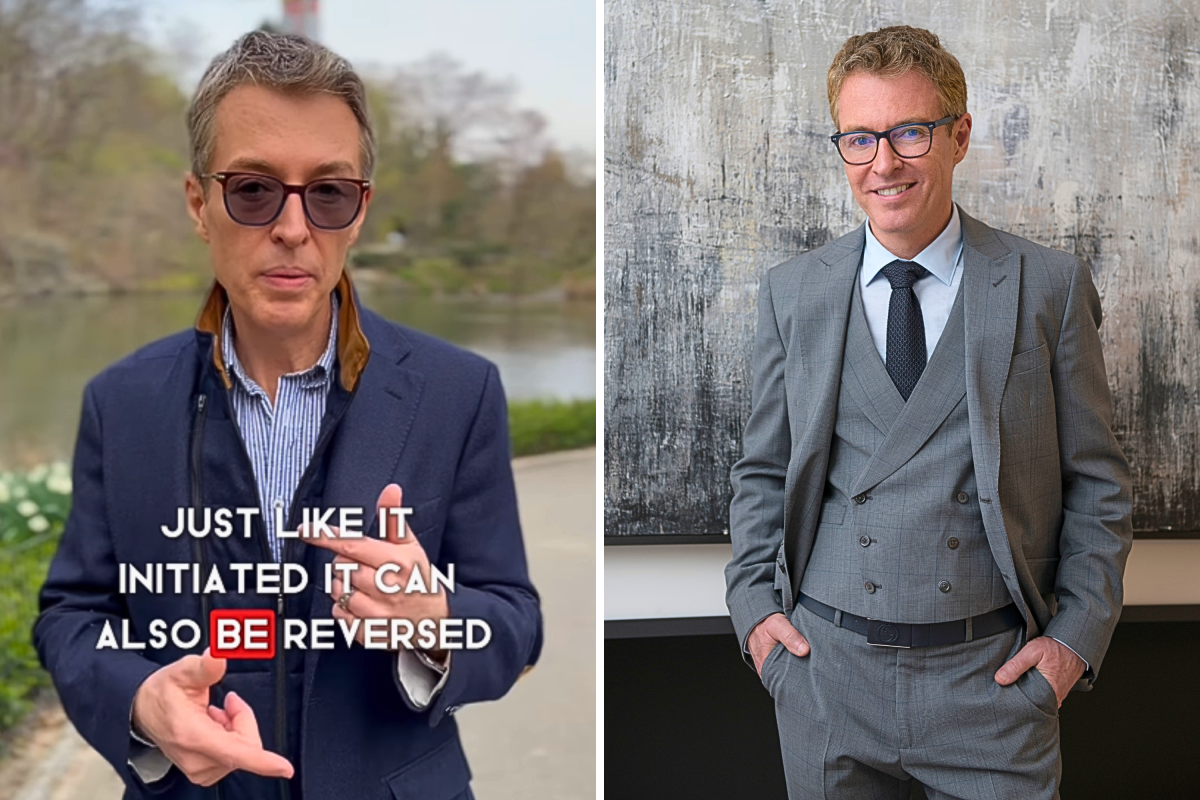How it is possible to “inherit stress,” according to a neurosurgeon
Can we inherit stress? Leading neurosurgeon John Strugar says we can.
An assistant professor of neurosurgery at Yale University School of Medicine, has sparked a conversation online after making a case for how stress can be passed down from generation to generation.
Strugar walked viewers through the concept of “stress waves from other countries,” in a social media post from April 13. The neurologist explained how stress or trauma What happens in one generation can affect the brain development of the next generation.
“Have you ever wondered how stress can be passed from one generation to another? We will call it waves of different stress, “Strugar, who divides his time between Greenwich, Connecticut and New York City, he said.
“Stress can have a major impact on the amygdala, which is an important part of the brain involved in processing emotions, especially fear and stress responses.

@drjohnstrugar
“When a person is under stress, the amygdala can become overactive, leading to heightened emotions and increased feelings of fear and anxiety.”
A member of the American Medical Association explained mechanically, using a hypothetical situation to illustrate a concept.
Let’s assume that your grandmother was growing up during the great tribulation, she probably lived in London during the Blitzkrieg. [sic] or she had a bad relationship,” he said. “Her baseline glucocorticoid levels were high, and those glucocorticoids easily cross the placenta and affect the brain. your mother’s growing up.
“And the amygdala responds to high glucocorticoids by becoming larger,” he added.
If a person’s mother was born with a larger amygdala, a greater perception of threat, and a higher level of anxiety, and went on to have children—the same process would occurs during that pregnancy, and their child would be born with a high level. anxiety and depression.
This explanation is consistent with research in the field of epigenetics, which studies how environmental factors can change genes without changing the DNA sequence itself. A 2011 study, published by Cell Press, looked at how stress-induced changes in genes can be passed from one generation to the next.
Shunsuke Ishii, a molecular biologist at Japan’s RIKEN Institute in Tsukuba, wrote: “What we have found now has shown that such events can occur.”
Strugar’s expertise in neurosurgery, which includes more than 30 years of experience and fellowship training in skull surgery, lends great weight to his words. His work includes intracranial and spinal tumors, spine and spinal disorders, and brain injuries, with many publications and references to his name.
Although his understanding of the brain’s response to stress is based on a deep understanding of the principles of neural and neurophysiological processes, it does not have to be doom and gloom.
“The important thing to remember is that there is nothing genetic about this; this is all environmental, and it has been passed from generation to generation. Just as it started, it can be changed again, ” he said.
For this reason, once a person can find ways to reduce stress, their amygdala “turns down,” resets, and can reduce the transmission of the stress wave to the next generation.
This view is confirmed by Ishii, who highlighted the possibility of intervention more than a decade earlier.
“I hope people understand that different stresses can change gene expression without changing the DNA sequence,” he wrote in 2011.
Strugar’s revelations and supporting research highlight the importance of understanding and dealing with stress, not as an individual issue but as a multigenerational issue.
By recognizing the environmental roots of stress transmission, comes the opportunity to reverse its effects and improve health outcomes for future generations. Some users have chosen to take this, and share how they have tried to reduce the effects of stress on the emotional side.
“Great post,” another user, @isako.8, wrote. “I exposed my baby to a lot of Mozart, Bach, and Chopin in utero. I believe in the power of classical music and wonder if it goes to the amygdala.”
Another, @jblonde08, added: “I’ve learned that keeping toxic people out of your life helps reduce stress.”
Is there a health issue that is bothering you? Let us know at health@newsweek.com. We can ask experts for advice, and your story can be featured Newsweek.
Uncommon Knowledge
Newsweek is committed to challenging conventional wisdom and finding connections when investigating commonalities.
Newsweek is committed to challenging conventional wisdom and finding connections when investigating commonalities.
#inherit #stress #neurosurgeon
